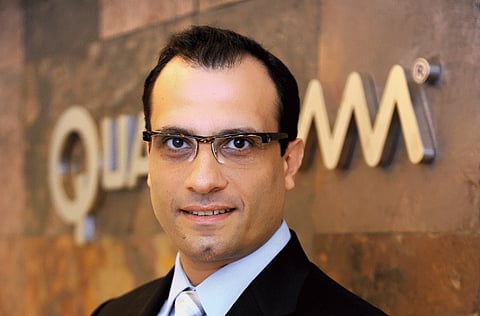Long-term plan for LTE
Efforts are on to take connectivity to the next level

Effective and fast communication is revolutionising the way we connect, do business and socialise. The world is becoming a single marketplace for trading and business as opportunities to interact increase multifold. Technology has come a long way since the first mobile phone call in 1973. In today’s world, swift communication is vital for governments, businesses and individuals alike. It facilitates economic development and opens up avenues for commerce.
The LTE revolution
As mobile phones and portable devices replace PCs, there is an increased emphasis on better connectivity. While 3G has certainly set the benchmark for better mobile experiences among consumers around the world, Long Term Evolution (LTE) — delivering data speeds of up to 450 Mbps (downlink) and 100 Mbps (uplink ) — is on track to take this to the next level.
LTE is a significant step forward in mobile and provides a robust technological platform for the ecosystem for innovative services. Not only does it provide better speeds and capacity — which enhances consumers’ overall experience when viewing videos or receiving news — it also provides new opportunities for operators.
Through LTE Broadcast, for instance, operators can broadcast en masse a rich, interactive multimedia experience of live stadium events. Also, as the world looks to connecting greater numbers of devices, LTE — specifically LTE Machine Type Communications — will play an increasingly important role in enabling the communication of these things.
Need for better infrastructure
However, for LTE to be successful, continued advancements in mobile infrastructure are vital. Qualcomm plays a leading role in this area. We are evolving the utilisation of LTE; from multicast and machine-to-machine communications to leveraging LTE as a complement to Wi-Fi (i.e. LTE-U), we have a significant part to play in the broadening of its usage.
Qualcomm also continues to develop LTE as part of a long-term technological road map. Our LTE-Advanced solution, for example, is several generations ahead of our competition in terms of speed and capacity. This creates differentiation for our vendor partners who can develop the fastest, most reliable devices in the industry. Similarly, our work allows operators to offer faster, more stable and compelling mobile services.
The GCC is a growing market for LTE, and Qualcomm is working closely with the ecosystem here. In this region, the potential for LTE adoption and growth is substantial and the ingredients of LTE success are there: high smartphone penetration, a mobile-savvy population and, most importantly, a rapidly growing appetite for data and mobile services. That is why carriers in countries including Bahrain, Kuwait, Oman, Qatar, The UAE and Saudi Arabia, now have at least one LTE network.
With GCC countries gearing up for hosting international events such as Expo 2020 (the UAE), the proliferation of LTE technologies becomes a crucial part of the equation. According to GSMA Intelligence, LTE connections in the Middle East increased by approximately 122 per cent year-on-year to about 7.5 billion as of the first quarter of this year. These figures are estimated to further increase in the last quarter.
Overall, the region is receptive to technological advancements and the residents welcome new technology both in terms of mobile devices and improved connectivity.
Future of LTE in the UAE
With the announcement of Expo 2020 and Vision 2021, as well as with the Smart City initiative in place, there is a need for further building up on the current LTE technologies to streamline communication and improve geographical connectivity.
Qualcomm has partnered with Dubai Internet City to create an ecosystem for entrepreneurs across the tech value chain, providing mentorship, networking and access to funding and workspace in in5, an innovation centre in Dubai. The initiative will foster assimilation of research and cutting-edge technology within a Smart Lab located in In5.
A robust ecosystem
Innovators will have access to technology and devices to build software around smart and futuristic services, including the internet of things, robotics and wearable devices. In the long run, these services will enable seamless connectivity between different devices, individuals and environments, creating an ecosystem that will reap benefits for the UAE along multiple fronts including economy, business, education and governance.
— The writer is the President, Middle East, Africa, South East Asia and Pacific, Qualcomm
Sign up for the Daily Briefing
Get the latest news and updates straight to your inbox



